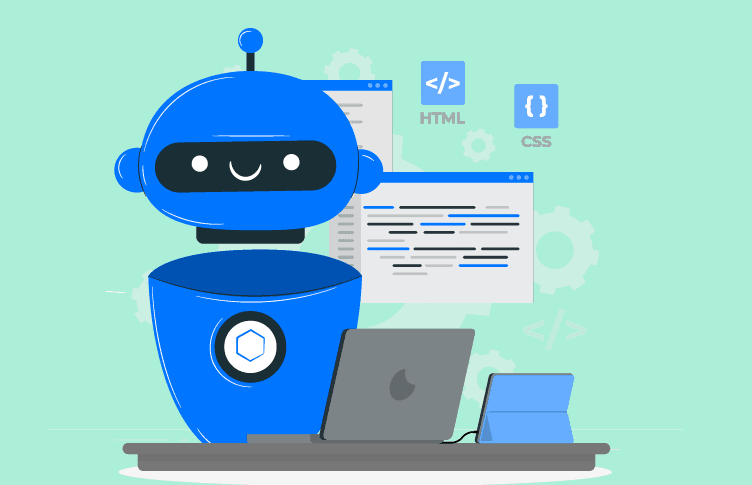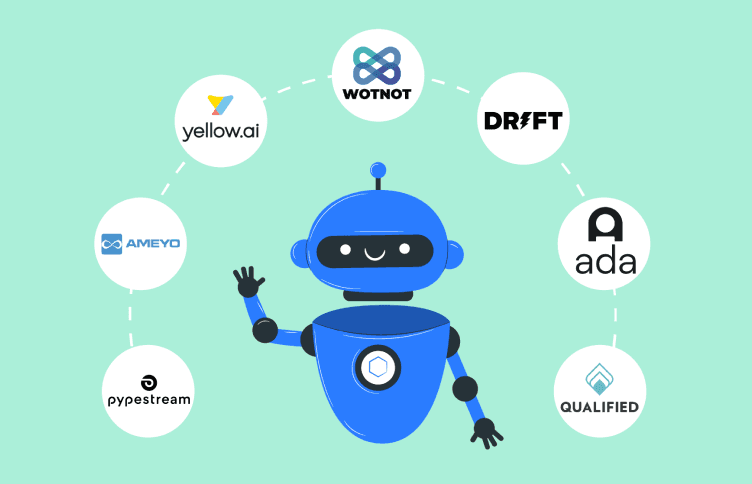Chatbot /
5 Min read
Top 6 Use Cases of Chatbots in Healthcare
June 18, 2020

Hardik Makadia
CEO, WotNot
Whether or not you are in healthcare, we all can agree on the fact that there is immense pressure on hospitals and healthcare providers. The hospital staff is flooded with operational tasks like scheduling appointments based on the doctor’s availability, directing the patient to the right specialist, assessing referrals, managing insurances, follow-ups, keeping track of equipment, and more.
A study conducted by Deloitte shows that 78% of physicians, sometimes, often, or always experience feeling burnt out. The demand-supply gap is widening in the hospital sector, which is costing the doctors their peace of mind and the hospitals their patients.
Hospitals in the United States spend more than USD 200 billion on administrative costs alone. With hospitals running on razor-thin margins, healthcare is increasingly embracing chatbots to cut down on operational costs and help them serve patients better.
Elucidated below are the use cases where hospitals can benefit greatly by implementing chatbots:
Appointments Scheduling
Managing appointments is one of the most tasking operations in the hospital. Though scheduling systems are being used, most of the patients still find it difficult to navigate the scheduling systems. The tools also lack flexibility and make it impossible for hospitals to hide their backend/internal schedules meant only for their staff.With a messaging interface, a chatbot can be easily accessed by the website/app visitors. A chatbot can schedule appointments with doctors based on the doctor’s availability and update. Furthermore, specifically designed chatbots can also keep track of all the visits and follow-ups of a particular patient, keeping the information handy for future references.
Addressing General Queries
The pre and post-consulting bring a multitude of frequently asked questions/general inquiries regarding diet, sleep routine, medication, and more. These questions are important but seldom need input from a busy doctor who has many more patients to attend to.“How can I get a prescription?”“How long is someone infectious after a viral infection?”“Which is the next vaccination for my 2-year old baby?”“Any specific diet to be followed during my medication period?”
Questions like these are important but can be taken care of without a specialist.
A chatbot in healthcare trained for these FAQs can address these generic queries from the patients. A chatbot is live 24*7 on your website which means it can address the patients’ queries at their convenience.
Symptom Assessment
A symptom checker bot can be the first line of contact between the patient and your hospital. The chatbot can ask relevant questions to the person and understand the symptoms. Resultantly, the healthcare chatbot can shortlist relevant doctors/physicians and straight away book an appointment with the doctor. This way, no matter the time of the day, the patient who lands on the website is greeted with relevant diagnosing questions in a conversational manner. This makes for a very warm and reassuring customer experience right at the beginning of your patient’s journey with you. Also with the help of your healthcare chatbot, doctors have access to necessary details like frequency and severity of symptoms beforehand, which helps them have a better understanding of the patient’s current health.
Counseling
The non-human nature of chatbots provides a sense of security to the user when it comes to sensitive topics like mental health and psychological conditions.The first psychotherapist chatbot, ELIZA, was built on the simple principle of asking to describe what the user has mentioned before in the conversation.Eg: User — I am feeling down.ELIZA — You say you are feeling down? Tell me more about it.The listening nature of chatbots proves to be therapeutic for people in mental distress.With training using Natural Language Processing, healthcare chatbots can augment the therapist’s work with context-based responses.
Update on Lab Reports
Chatbots in healthcare can seamlessly help patients to keep a track of their latest lab reports. Locating nearby testing centers, pathological labs, inquiring about the price of different tests, etc can be effective use cases taken up by the chatbot to facilitate easier and faster access to information. Given the sense of urgency associated with medical reports, an instant response by chatbots can make the world of difference to your brand, as perceived by your patients.
Internal Team Coordination
Not only can your patients benefit from chatbots, but your hospital staff can too. In today's healthcare environment, care management teams are more burdened than ever. A chatbot, integrated with hospital management software, can be utilized for internal record-keeping of various hospital equipment like beds, oxygen cylinders, wheelchairs, and more. Whenever a team member needs to check the availability or the status of an equipment, they can simply ask the bot. The bot will then fetch the data from the system, thus making operational info available at their fingertips. This results in better team coordination while decreasing delays due to interdependence among teams.Doctors and nurses can also have access to patient information such as prescribed medication, check-up reports, allergies, scheduled and canceled appointments, etc. This would significantly reduce the time healthcare professionals spend searching for updates in the patient information system.
Wrapping Up
The healthcare space is replete with scenarios that need to be automated to make care-providing better and more efficient. Offloading simple use-cases to chatbot can help healthcare professionals focus on treating patients with patience.
Healthcare chatbots enable your brand to be accessible to your patients 24*7, making your healthcare center synonymous with round-the-clock care. Continuous interaction with your brand as per their need also results in satisfied patients who feel cared for.
At WotNot, we work with leading healthcare providers by deploying chatbots and virtual assistants that address medical diagnosis, appointment booking, data entry, in-patient and out-patient query addressal and automation of customer support.
ABOUT AUTHOR
Hardik Makadia
CEO, WotNot
His leadership, pioneering vision, and relentless drive to innovate and disrupt has made WotNot a major player in the industry.



